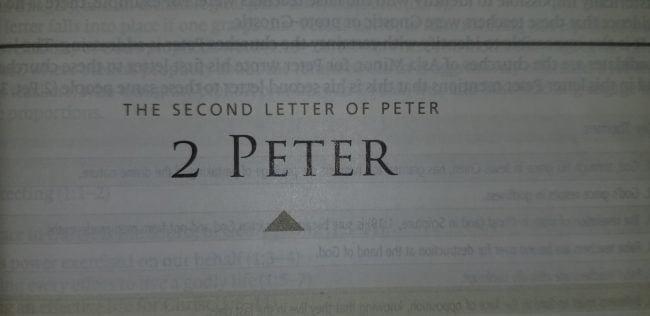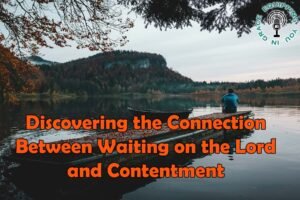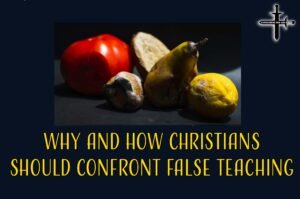If you were a slave, don’t you think you would know it?
In 2 Peter 2:18-19, Peter tells us that false teachers “are slaves of corruption” even though they claim to know the way to freedom. They are enticing people to sin by “speaking loud boasts of folly” about their own sinful behavior. Perhaps they are boasting in how they have not been punished yet. Look at me! I did what I wanted all weekend, and no bolt of lightning came out of the sky to smite me! Perhaps they boast in what they can get away with or clever ways they have found to pursue their sensual appetites. However they boast, Peter is concerned that those who hear their boasts will be tempted to follow their own “sensual passions” (2 Peter 2:18). False teachers use our own lusts as the bait to tempt us toward sin.
We all understand temptation. Temptation arises when something in the world looks like it will fulfill a desire in our own hearts. We want to experience–to taste, touch, hear, feel, or see–and the things of this world look like they will fulfill our appetites. It doesn’t feel like slavery. It feels like freedom.
But then these things of the world don’t fulfill their promises. A relationship we thought would meet our need to feel loved disappoints. The sensation of enjoying our food or drink dissatisfies. The immediate gratification of sexual acts doesn’t last. What felt like freedom at first taste begins to feel like slavery as we keep looking for another taste, and another, and another. Each taste does less for us. When we pursue things that do not satisfy, that can not satisfy, our appetites become our slave masters and we can become enslaved without even knowing it. Peter warns us that the false teachers who “promise…freedom” are themselves “slaves of corruption” (2 Peter 2:19). They are giving people permission to indulge in anything they can come up with. But as they sin, their appetites for sin will grow until sin is their master.
When I was a camp counselor one summer, we read a series of allegories about the Christian life. In the most memorable, a princess is taught to fear the danger of dragons. But upon finding a dragon egg, she convinces herself that she can nurture the egg and gain the trust of the baby dragon, therefore proving her parents’ warnings to be false. Of course, things begin well. The baby dragon does indeed depend on her care. But as the dragon grows, she begins to realize the folly of her choice. He is a beast who cannot be tamed or contained. Our appetites may start out seeming harmless enough, but as we feed our appetites they will grow, and eventually our appetites will be more powerful than we are. Peter warns his flock that “Whatever overcomes a person, to that he is enslaved” (2 Peter 2:19). This letter continually warns us that the ability to get away with sin for a time does not disprove that sin is ultimately dangerous and that judgment is coming. Don’t trust what you can see right now or what you hear. We cannot let “sin reign in our mortal bodies” or “obey its passions” (Romans 6:12). We must trust the wisdom of scripture which points out the dangers of sin and not those who are attempting to lead back towards sin “those who are barely escaping from the way of error” (2 Peter 2:18). If we have come to Christ, we have escaped the way of error. Let us pray that we will never return!
Laura Lundgren is a lifelong reader, former English teacher, current homemaker, and aspiring writer. She makes her home in Wisconsin with her husband, who is also her pastor, and her four young kids.







